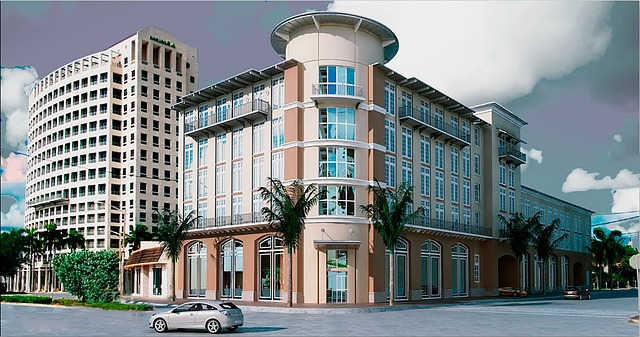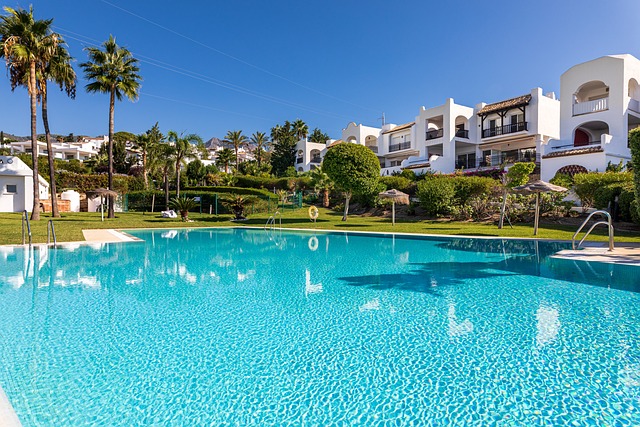The Singapore property market is a dynamic and attractive investment option, offering both residential and commercial opportunities due to the country's robust economy and strategic global location. Beginners buying a second property should research areas, understand the legal framework, and stay updated on trends for informed decisions. Buying a second property in Singapore provides increased rental income potential, personal use options, and long-term appreciation, making it a valuable asset for wealth accumulation. Explore condo or HDB resale flats, set a budget, engage a specialized agent, and consider various financing options, including government schemes and private bank promotions. Diversifying investments through real estate, especially by buying a second property in Singapore, offers strategic advantages like risk spreading, steady income streams, and protection during economic downturns.
Looking to diversify your investment portfolio? Consider buying a second property in Singapore, a strategic move that can offer significant advantages. This article guides you through the process with an extensive beginner’s guide to the local market. We explore benefits, property types, and legal steps for acquisition. Additionally, financing options and real estate strategies for effective diversification are covered, empowering you to navigate this lucrative opportunity in Singapore’s vibrant property landscape.
- Understanding the Singapore Property Market: A Beginner's Guide
- Benefits of Owning a Second Property in Singapore
- Types of Second Properties to Consider for Investment
- Steps to Purchase Your Second Property Legally and Effortlessly
- Financing Options for Your Second Home in Singapore
- Strategies for Effective Portfolio Diversification Through Real Estate
Understanding the Singapore Property Market: A Beginner's Guide

The Singapore property market is a dynamic and attractive landscape for investors, offering both residential and commercial opportunities. For beginners looking to buy a second property in Singapore, understanding this market is key to making informed decisions. The country’s robust economy, coupled with its strategic location as a global hub, drives real estate values, making it a lucrative investment venue.
Singapore’s property scene is characterized by strict regulations and a transparent system, ensuring fairness for all buyers. The government’s policies often aim to balance the market, providing stability despite fluctuations. Whether you’re considering buying a second home or an investment property, researching different areas, understanding the legal framework, and staying updated on market trends will equip you with the knowledge needed for successful buying in this competitive yet rewarding environment.
Benefits of Owning a Second Property in Singapore

Owning a second property in Singapore offers a multitude of benefits for those looking to diversify their investment portfolio. One of the primary advantages is the potential for increased rental income, providing an additional financial stream that can help offset living expenses or even contribute to your primary mortgage. In a bustling city-state like Singapore, where real estate is scarce and demand is high, having a second property can give investors an edge in meeting the growing housing needs of tenants.
Moreover, buying a second property allows for diversification beyond just financial gains. It provides homeowners with options for personal use, such as a place to stay when visiting family or friends, or even as a holiday home. In terms of long-term investment, properties in Singapore have historically shown resilience and appreciation, making them valuable assets that can contribute to wealth accumulation over time.
Types of Second Properties to Consider for Investment

When considering a second property in Singapore through buying, it’s essential to explore various options tailored to your investment goals and preferences. Condos are a popular choice for many investors due to their accessibility, relatively lower entry costs compared to HDBs or land, and high rental yields. These properties offer the advantage of being located in prime areas, close to city conveniences and amenities.
Another option to ponder is purchasing a Housing & Development Board (HDB) resale flat. These provide an attractive balance between affordability and potential capital appreciation. HDBs are known for their strong demand from both local and foreign buyers due to Singapore’s unique HDB system, which offers a sense of community and long-term investment stability.
Steps to Purchase Your Second Property Legally and Effortlessly

When considering a second property in Singapore, it’s crucial to ensure your purchase is legal and seamless. Start by defining your budget and understanding the market dynamics for properties that align with your investment goals. Research various neighborhoods, considering factors like proximity to amenities, employment hubs, or educational institutions, as these can impact rental yields and long-term value appreciation.
Next, engage a reputable real estate agent or property consultant who specializes in second homes to guide you through the legal process. They will assist with understanding the necessary permits, such as the Additional Property Tax (APT) registration, which is mandatory for owning more than one property in Singapore. Additionally, consult financial advisors to explore suitable financing options tailored to your needs, ensuring a stress-free and efficient buying experience for your second property in Singapore.
Financing Options for Your Second Home in Singapore

When considering buying a second property in Singapore, understanding your financing options is crucial for a smooth and successful transaction. There are several avenues to explore when it comes to funding this significant investment. Traditional bank mortgages remain a popular choice, with various fixed-rate and variable-rate loan packages available tailored to different buyer profiles. These loans often require a substantial down payment, typically 20-30% of the property’s value.
For those seeking more flexible options, government schemes like the Housing & Development Board (HDB) Down Payment Grant or private bank programs offering low-interest rates and special promotions can be highly beneficial. Additionally, wealth management firms provide alternative financing methods, such as private banking loans or structured finance products, catering to high-net-worth individuals. Each option has its advantages, so it’s essential to evaluate your financial situation, preferences, and long-term goals before making a decision that aligns with your Buying Second Property In Singapore strategy.
Strategies for Effective Portfolio Diversification Through Real Estate

Diversifying your investment portfolio through real estate is a strategic move that can significantly enhance your financial security in Singapore. When considering Buying Second Property In Singapore, think beyond just residential properties. Commercial spaces, industrial estates, and even land parcels offer unique diversification opportunities. This approach spreads risk by allocating your capital across different property types, tenures, and locations, which is crucial for navigating Singapore’s dynamic market.
A well-diversified real estate portfolio can provide a steady income stream through rentals, offer potential capital appreciation, and serve as a hedge against economic downturns. For instance, commercial properties cater to businesses, ensuring consistent demand while industrial estates benefit from the e-commerce boom. Strategizing your purchases based on market trends, demographic shifts, and government initiatives ensures you make informed decisions. Remember, Buying Second Property In Singapore isn’t just about acquiring assets; it’s about building a resilient investment strategy tailored to your financial goals.
Diversifying your portfolio by buying a second property in Singapore can offer significant advantages, from potential rental income and capital appreciation to enhanced financial security. By understanding the local market, exploring various property types, and leveraging legal and financing options, you can make informed decisions that support long-term wealth growth. This strategic approach to real estate investment is key to achieving a well-rounded and robust portfolio in today’s dynamic Singapore property landscape.
